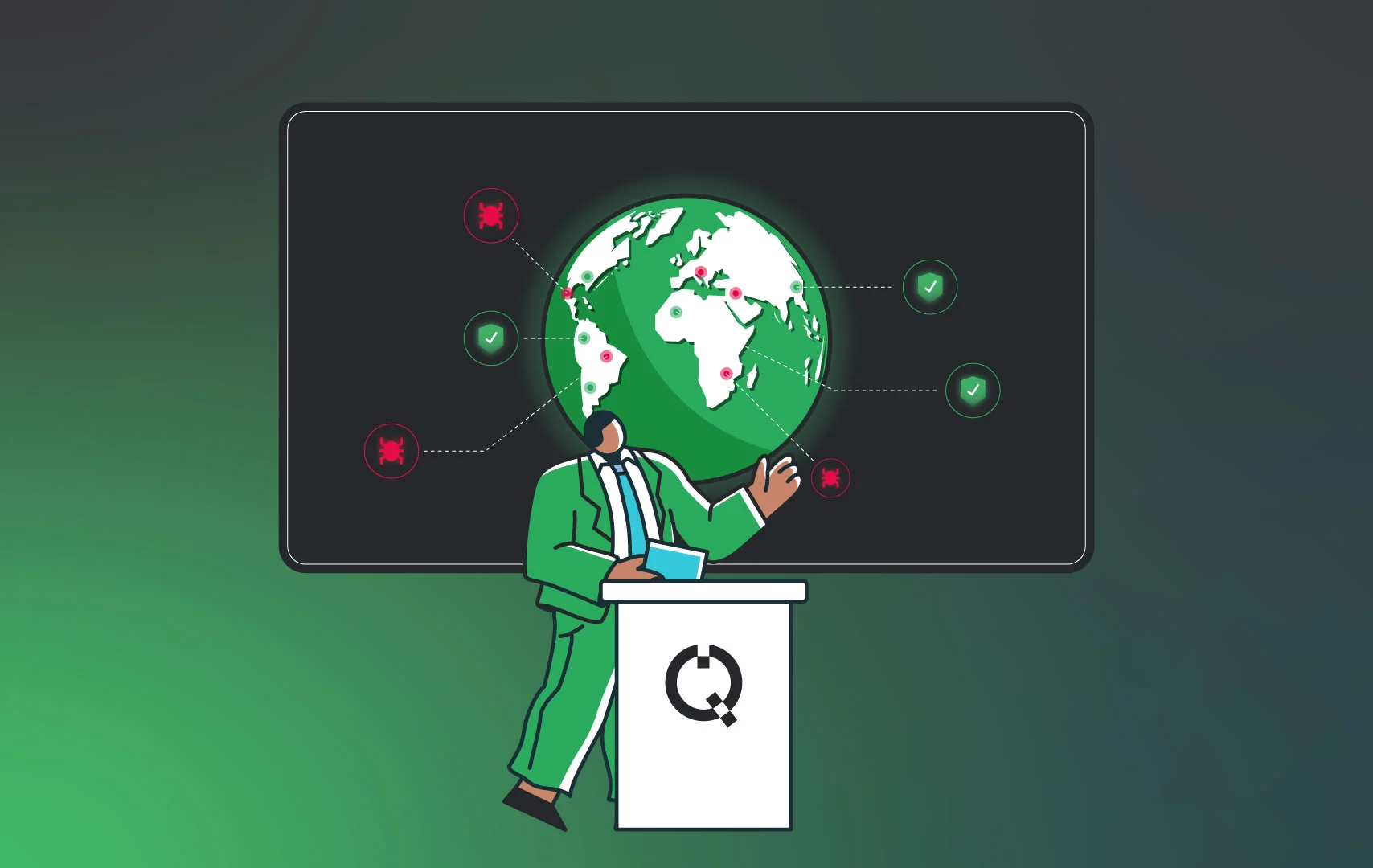Cybersecurity in a Shifting Political Environment
February, 7, 2025
3 minutes read

2025 has begun with significant political upheavals that have generated uncertainty in many critical sectors of society. International markets, business leaders, and the global community anticipate the possibility of drastic and sudden changes each day. Such events highlight the resilience of organizations to adapt to change and can often result in the total failure of a company. In these scenarios, cybersecurity usually becomes a lower priority when, in reality, it should be the most important ally for companies amidst uncertainty.
The most substantial change currently facing the international system involves a trend of moving away from multilateralism and other forms of cooperation. For many, this implies imminent cybersecurity risks. In the realm of cybersecurity, some of the recommended best practices include transparency, multi-sector collaboration, and information sharing. As governments and markets around the world close, while digital threats continue to evolve, we need to reinforce our security more than ever.
Moreover, the growing polarization in international politics creates an environment where cyber espionage, cybercrime, and disinformation campaigns can flourish. These tools may become part of the strategies of relevant actors aiming to effect change in the system, but along the way, they generate negative impacts across various sectors. In this context, cybersecurity must not be sidelined. Rather, it should be considered a strategic priority. A solid cybersecurity strategy goes beyond protecting organizations from attacks; it safeguards economic stability and public trust. Organizations that fail to adapt to this new paradigm may face risks that extend beyond mere data loss; they could encounter profound impacts that threaten their long-term viability. Here, we outline several considerations for reinforcing cybersecurity in the face of instability:
Strengthening Cybersecurity Systems
Many cyber attackers exploit instability in the international landscape to enhance the execution of attacks such as phishing and ransomware. In an environment where digital coercion is used as a tool of geopolitical pressure, organizations must be prepared to respond quickly and effectively to any eventuality. This includes implementing advanced defense technologies and preparing incident response protocols. Platforms like Batuta aim to help organizations streamline their cybersecurity strategy by providing greater visibility of their assets and enabling rapid adaptation to these types of changes.
Developing an Organization-wide Cybersecurity Strategy
Increasingly, decision-making processes are influenced by misleading information and lax security controls, making it essential to foster an organizational culture that values cybersecurity. Companies should implement cybersecurity training programs that raise awareness among all employees regarding best practices and potential risks. A well-informed workforce serves as the first line of defense in the fight against cyber threats.
Fostering and Protecting Collaboration
Given the interconnected nature of global trade and the economy, cybersecurity continues to demand a collaborative approach. Advocating for the protection of multi-sector and international cooperation mechanisms is our best bet for creating a strengthened cybersecurity front. Primarily, the exchange of information between companies, states, and institutions could be crucial in anticipating and neutralizing common threats. Instead of opting for fragmented cybersecurity strategies, our main objective should be to view cybersecurity as a tool for collaboration, thereby mitigating the risks associated with a fragmented and divided world.
Ultimately, organizations must integrate cybersecurity into their strategic and operational planning. This is not just about protecting digital assets; it is about ensuring the continuity of business operations, and critical services, and fostering innovation in an uncertain environment. Companies that recognize and prioritize cybersecurity will be better prepared to face immediate challenges and establish a solid foundation for long-term growth and resilience in an uncertain future. Cybersecurity is not merely a defensive issue, it is a deliberate strategy for thriving in an ever-changing world.




